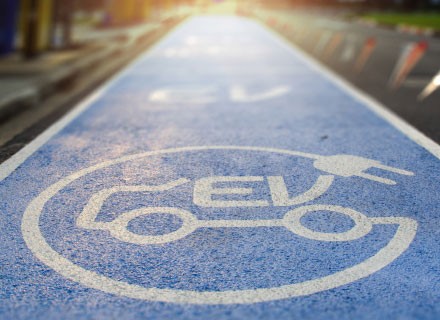The ban on petrol and diesel has come as no surprise, but the news has sent shockwaves across the UK. On November 18, Boris Johnson announced that as of 2030 no cars that use petrol and diesel will be sold in the country. The prime minister is planning a green industrial revolution that focuses on his ten-point action plan to make this happen. Investments in sustainable energy and improved public transport are included. The electric vehicle market is due to receive £1.3 billion in funding to help with this. The UK will witness the introduction of significantly more charging points, while buyers will receive additional support—thanks to a grant being implemented to aid those making the switch. Despite his announcement facing backlash, not everything is getting distorted. In fact, the electric vehicle market has been a saving grace over the last two years.
What the past 2 years has looked like
There is no denying that new car sales were poor in 2019, and it was diesel fuelled cars that took the biggest hit. The sale of new USD vehicles was down 2.3 percent overall. Of course, the plan to introduce additional ultra-low emission zones across the country alongside the impending fear of the ban on ICE vehicles was enough to discourage anyone from buying diesel. However, in some aspects, the growth of the electric car market softened the blow to the diesel market.
Sales of electric vehicles rose by 144 percent in 2019. Why? Because motorists want fuel-efficient, high performance, low emission vehicles—and in the modern world that we live in—thanks to stark developments in automotive engineering—electric vehicles offer exactly that. In all parts of the automotive industry, 2020 has been noticeably bleak. Showrooms across the country forced to shut their doors and manufacturing plants unable to take delivery of parts have further contributed to the lack of buying invoked by the recession. Despite the market contraction, electric vehicle sales experienced a year-on-year rise of 184 percent in September.
Looking back at the past
Electric vehicles had negative connotations in the nineties and twenty-tens: Poor mileage, expensive, and in most parts lacking in what Thierry Henry once described as ‘va va voom’. And this outlook was not inaccurate. If you went to purchase an electric car, often these three attributes were true, and you were hardly spoilt for choice when it came to options either. The Prius changed the game admittedly, but even when it came to prominence, we were still left wanting more.
With the world becoming now more environmentally conscious than ever, big brands have jumped on board with the demand for electric cars: Jaguar, Porsche, Renault, Audi, Hyundai and Nissan, to name just a few. Nissan, with its innovative model Nissan Leaf, has developed exactly what the average car manufacturer desired—a plug-in vehicle that had a mileage range of more than 200 miles—which was powerful, and perhaps more importantly, was affordable.
British government’s efforts to promote EVs
It is no secret that diesel and petrol prices are rising. It would be naive to think that the currently depleted prices caused by Covid-19 will last beyond the end of 2020, and that once the oil market returns to some form of normalcy, we should expect to see fuel prices return to the prices they were displaying in the earlier months of 2020.
To encourage more people to switch from emission-producing vehicles to electric or hybrid alternatives, the British government is now offering £3,500 grants. All of these efforts are in a way to help meet their ambitious net-zero targets in terms of emissions and air quality by 2050.
Defining range anxiety
Range anxiety is hardly unfounded. The Washington Post has defined it as the “state of fear of driver’s experience from knowing that their battery could run out of charge and strand them far from a recharging station.” Despite this, a study conducted by MIT suggests that this concern is a thing of the past. Firstly, the study points to the fact that a vehicle with a range of only 80 miles will sufficiently appease between 84 percent and 93 percent of daily trips of citizens living in a developed country.
Electric vehicles have numerous types of chargers. In terms of weaker alternatives, level 1 and level 2 produce similar power to what you would usually find in a computer or a washing machine. These are the chargers commonly found in residential housing and parking spaces, providing a basic level of power, appropriate for short journeys. Meanwhile, level 3 found at charging stations, such as BMW i3’s SAE Combo, transfer 80km to 145km in 20 minutes, helping quash this aforementioned ‘range anxiety’ for the everyday motorist embarking on longer treks. In another example, Tesla’s exclusive level 4 superchargers power an astounding 270km in 30 minutes. It is predicted that within the next five years, level 4 will be readily available.


